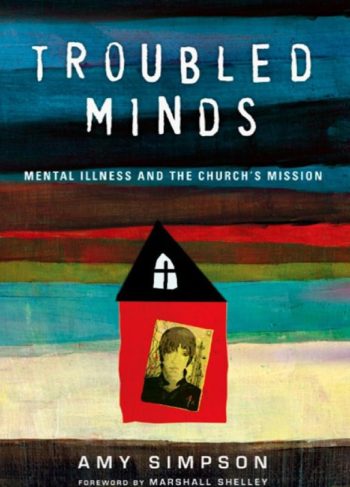Amy Simpson, in her classic book, Troubled Minds: Mental Illness and the Church’s Mission (read our interview here).
***************************************************************************************************************
“Any church that demands health, attractiveness and high performance from its members will succeed in filling itself with people who are good at pretending to be healthy, attractive high performers at all times, regardless of the true story unfolding in the places only God can see.
Jesus’ term for such people was ‘whitewashed tombs.’
***************************************************************************************************************
Indeed.
When hurting is seen as a sign of spiritual failure, it’s no wonder the hurting struggle feeling at home in church.
The church is excellent at saying, “If you’re hurting, come here, and we will welcome you.”
But there’s often a catch.
If you’ve been there five years and still struggle, the message becomes, “What’s wrong with you? You’ve been here five years? Aren’t you growing in Christ?”
Well, if you come to church with a broken back, you’ll have a broken back, five years later, unless you get medical help.
And the same goes for depression, anxiety, and these other medical conditions.
“Growing in Christ” won’t grow you out of your depression or anxiety any more than it will grow you out of a brain tumor.
And yet, Bob Smietana highlights a 2018 Lifeway Research study that shows just how backwards the church has it.
One of the complications for Christians with mental illness is that they feel pressure to still grow spiritually.
Lifeway Research found that most pastors (76 percent) and family members (74 percent) felt a Christian with acute mental illness could thrive spiritually, even if their condition was not stable.
Nearly two-thirds (63 percent) of people with mental illness also believe that someone could thrive spiritually even if their condition wasn’t stable.
The experts in the Lifeway study, however, cautioned that stabilizing a person’s mental health should come first.
Christians can feel God’s presence and comfort in the midst of their struggles with mental illness.
But it’s difficult to thrive spiritually if someone’s mental illness is not stable.
Absolutely.
Christian psychiatrist Dr. Brian Briscoe puts it this way in our recent interview.
“If you’re clinically depressed and you’re not functioning well, the medication can make it so you can go about life, functioning. And of course, you’re going to feel better at engaging in life.
There’s also an aspect of depression that involves “anhedonia,” which is an inability or diminished ability to experience joy or pleasure.
That’s a biological process.
Let’s say you’d normally enjoy going to a movie or throwing your grandchild in the air.
If you’re clinically depressed, that joy or pleasure is diminished.
Likewise, in your relationships, when you see someone you love, your ability to experience that joy or pleasure is diminished.
That happens in your horizontal relationships.
It also happens in your vertical relationship.
When you’re clinically depressed, your ability to experience joy and pleasure towards God is affected.
God is still with you, but your internal experience of that is diminished.
And when people are depressed, they will often feel that God is distant.
Many times — assuming the medication is right and improves the underlying anhedonia — your spiritual experience improves, your connection in your horizontal relationships improves, your joy and sense of pleasure is restored.”

